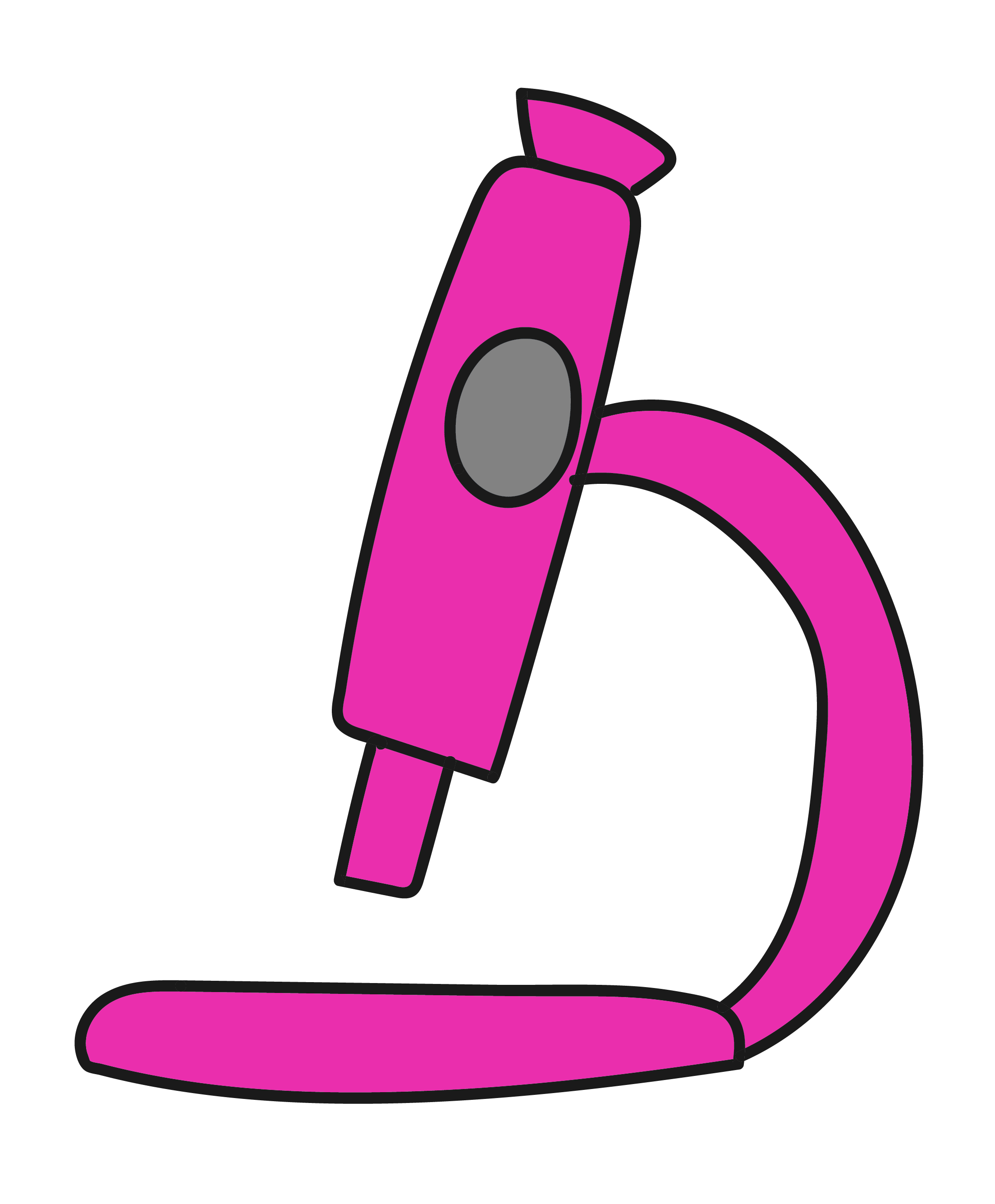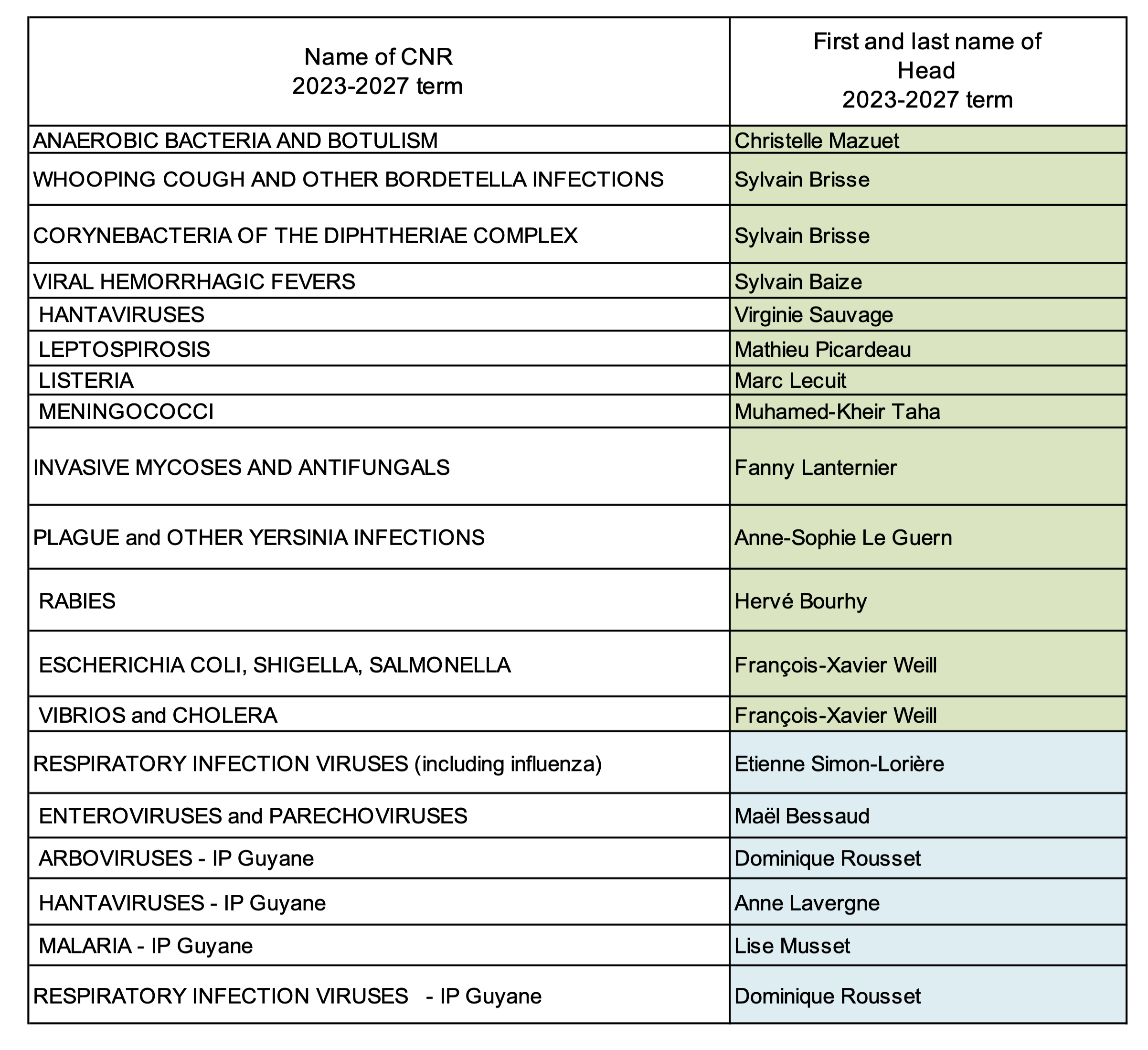
 Research
Research
Focus on CNRs: role, missions, challenges and latest news about the Institut Pasteur's National Reference Centers
 Key points about national CNRs
Key points about national CNRs
National Reference Centers (CNRs) serve as both expert microbiology laboratories and observatories for monitoring communicable diseases. They centralize information on a national level, thereby contributing to efforts to tackle and control these diseases.
Their key missions involve:
• Expertise concerning the microbiology and pathology of infectious agents, the development, optimization, validation and distribution of medical biology examinations; the identification and confirmation of pathogens.
• Scientific or technical advice in response to any request from the French Health Minister, Santé publique France (SpF) and health professionals.
• The contribution to epidemiological surveillance:
- by carrying out the analyses necessary for the monitoring of pathogens;
- by leading a network of laboratories responsible for handling examinations and subsequently transmitting results.
• Immediately alerting Santé publique France, the French Ministry of Health, and, where applicable, the Regional Health Agency to any finding likely to present a risk or threat to public health.
CNRs are hosted in public or private healthcare, education or research institutions, and form a national network on which Santé publique France (SpF), the national public health agency, can rely in the performance of its missions.
They are appointed as CNRs by order of the Ministry of Health for a five-year term, renewable subject to an assessment by a CNR committee reporting to the Director General of SpF. The latest term to date came into force on January 1, 2023.
 Latest news about the Institut Pasteur's CNRs
Latest news about the Institut Pasteur's CNRs
The order of December 30, 2022 laying down the list of National Reference Centers (CNRs), CNR-coordinating and associated laboratories and CNR-expert laboratories for the fight against communicable diseases (see the French legal gazette (JO) of December 31, 2022) established the list of 43 CNRs appointed by the French National Public Health Agency, Santé publique France, for the term from January 1, 2023 to December 31, 2027.
Among these 43 CNRs, 19 operate under Institut Pasteur supervision (15 in mainland France, including one new center, and 4 in French Guiana). This is a major point for the Institut Pasteur which reaffirms its commitment to public health, in support of Santé publique France, and also its strong determination to advance research via its expertise underpinned by the analysis and characterization of numerous samples that support scientific research.
Below is the latest list of CNRs based at the Institut Pasteur until December 31, 2027:

Key*:

*To conduct certain missions, a CNR can rely on one or more laboratories known as "CNR-associated laboratories" with complementary activities. In this case, the CNR Head is responsible for coordinating all the activities of the associated laboratories.
 Further information and the latest decision memos published on the topic:
Further information and the latest decision memos published on the topic:
View the list of the Institut Pasteur's CNRs